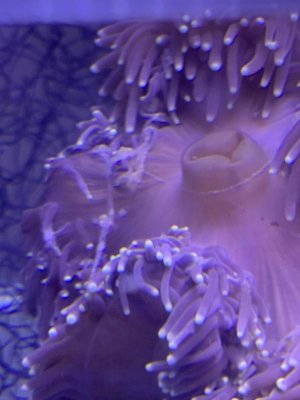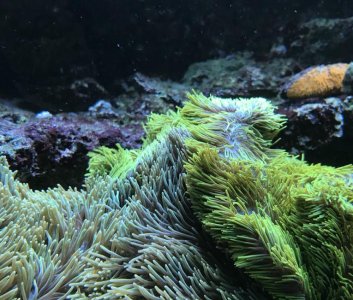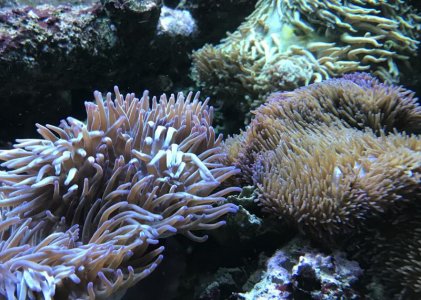Hi
My ritteris are currently in treatment with cipro. THey seemed to be slowly getting better. It's been since this past Saturday night (from what i read they should be better by now, they are not). But they are losing there tentacles along with 'poop'. There are black spots in the balls of mess that accumulates as well. This seemed to really start happening on Tuesday, when they got a new tennant of my sick sebae (lucky me). The sebae was fine until a few days after I put the ritteri's in DT, by the way.
I ended up disposing of the sebae -- it was just disintigrating. But it seems since then is when the ritt's have been losing tentcales in these little balls. I believe they are tentacles, b/c there are little defleated tubes with yellow tips wrapped up in the balls of excretion. I think it basically means the ritts are on the way out (?) ... What can I do, if anything?
... What can I do, if anything?
TY!
My ritteris are currently in treatment with cipro. THey seemed to be slowly getting better. It's been since this past Saturday night (from what i read they should be better by now, they are not). But they are losing there tentacles along with 'poop'. There are black spots in the balls of mess that accumulates as well. This seemed to really start happening on Tuesday, when they got a new tennant of my sick sebae (lucky me). The sebae was fine until a few days after I put the ritteri's in DT, by the way.
I ended up disposing of the sebae -- it was just disintigrating. But it seems since then is when the ritt's have been losing tentcales in these little balls. I believe they are tentacles, b/c there are little defleated tubes with yellow tips wrapped up in the balls of excretion. I think it basically means the ritts are on the way out (?)
TY!



